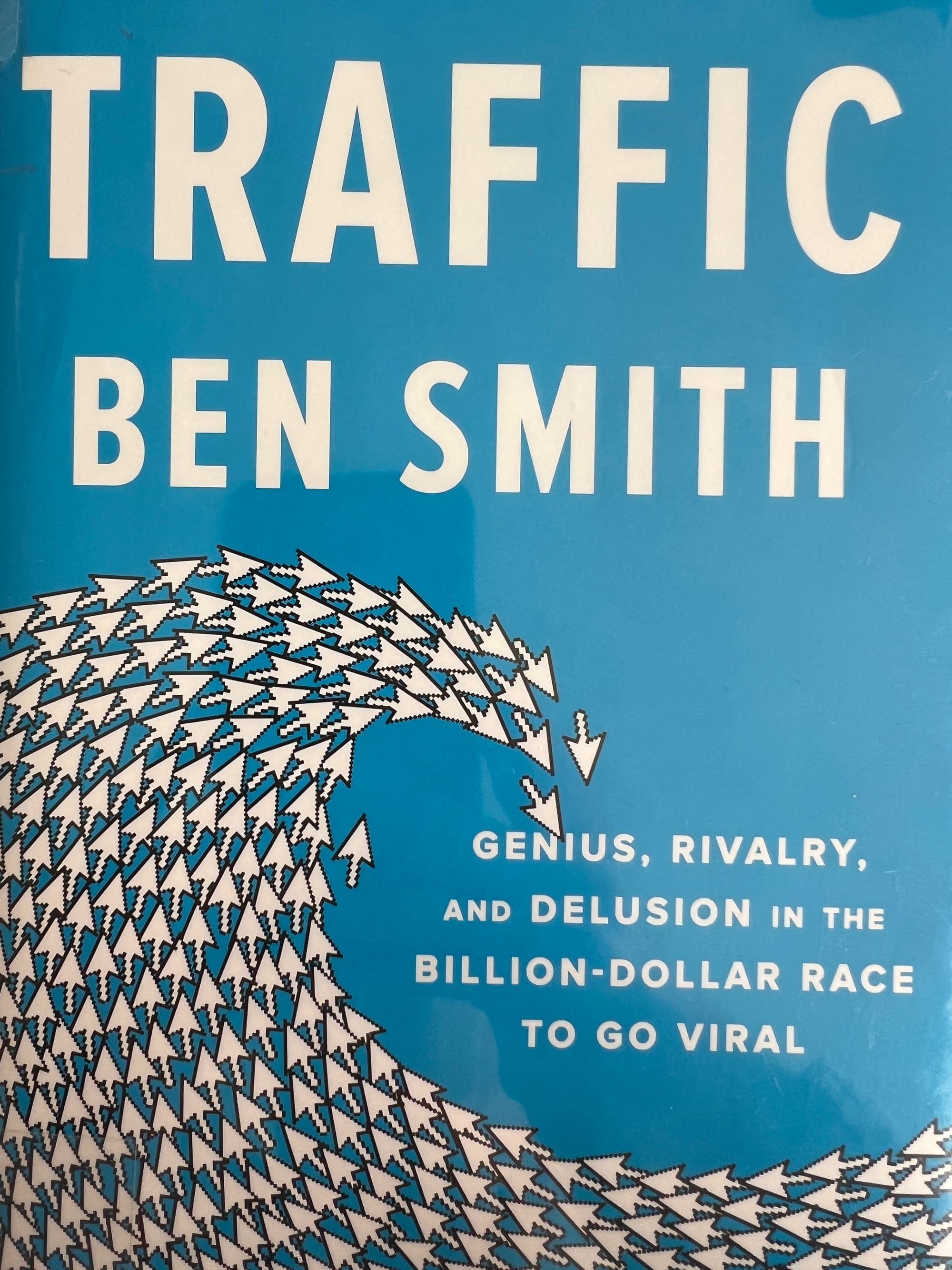Live By The Traffic, Die By The Traffic
Ben Smith's 'Traffic' is a rollicking ride through the early aughts' internet and the rise of vitality and digital metrics.

While I was out in Wyoming a few weeks ago, my friend Jake was hosting me, and he was telling me about some of his favorite books he'd read in 2023. Near the top of his list was Traffic by Ben Smith.
I confessed it had fallen off my radar after I read a lot of coverage around its release. So in the down moments on my short visits, I started reading Smith's account of the time period that I most acutely associate with the concept of the internet—the mid-2000s.
The back-and-forth, dueling narratives of Gawker's Nick Denton and Buzzfeed's Jonah Peretti are so engrossing. It talks about things that now seem quaint, but with some perspective, were clearly revolutionary ways of thinking about the still relatively young technology of the internet.
I remembered bits and pieces of this history, but I was too young to fully appreciate the context. Smith has an easy readability and conducted some impeccable reporting to flesh out these stories, especially before he became a part of the narrative via his role at Buzzfeed News.
Jake was a good salesman for the book because he's living—and working, as the now editor of the paper we joined at the same time as reporters—in the shadow of the world Denton and Peretti helped create. He's overseeing a continually changing news media landscape. While I was there, he and the paper announced they'd be leaving the large building that had housed the paper for many years for a much smaller retail space. He's managing the new digital reality we stepped into when we first arrived in the state in the middle of 2020—a twice-weekly print schedule, downgraded from six days a week, and a "digital first" strategy.
Local newspapers perhaps felt immune from the traffic-chasing demands of the internet for a long time, since the markets for the news of a remote small town are different from the internet-native sites like Gawker and Buzzfeed. Jake is watching owners grapple with potential strategies that have already run their courses on larger digital-only scales, but the necessity of lowering operating costs and maximizing advertising dollars (in addition to subscriber dollars) makes the status quo infeasible.
The crazy thing is that the world Denton and Peretti helped shape isn't just a business reality now; it's trickled down to the individual level. The advent of social media and the rise of influencers and content creators make many worried about traffic. I, with my meager readership, have a Google Analytics account and can (and do) check the stats for my website and newsletter.
It was fitting that on the same day I finished the book I got this article from writer Justin Cox's newsletter This Just In (registration required to see full post) with the provocative title: "Metrics Don't Matter."
Cox has a huge readership compared to mine, but there's still something reaffirming about the message: Metrics aren't the be all, end all. I generally do a good job of ignoring them; I just do my thing and don't worry that much about readership. That, in many ways, was the beauty of the internet that existed before Denton and Peretti reshaped the digital landscape, and I don't mind being old-fashioned in that sense.